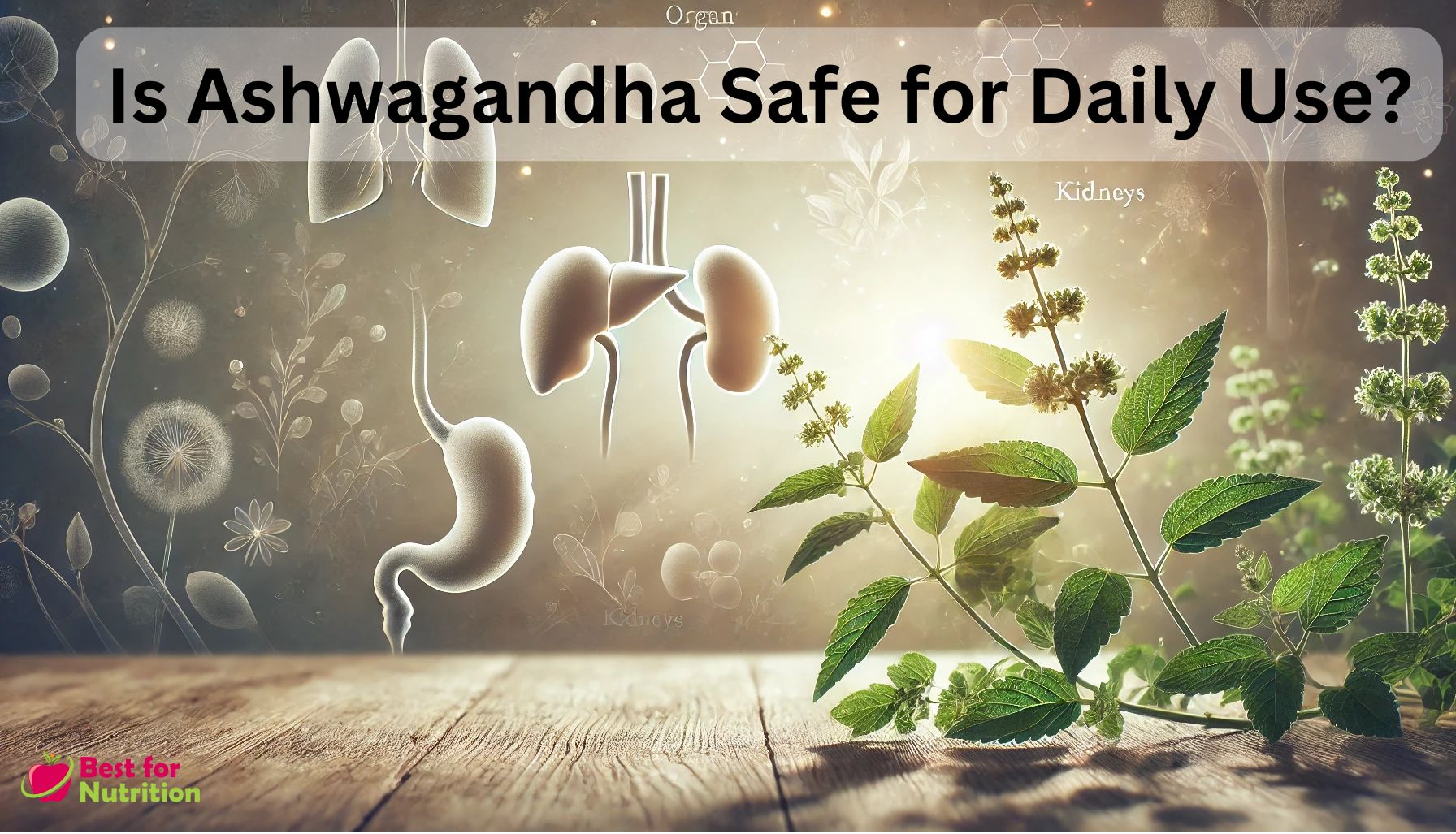Ashwagandha, an ancient herb used in traditional medicine, has gained popularity for its stress-relief benefits, but many wonder if it can also improve sleep. Research suggests that ashwagandha can support better sleep by promoting relaxation and reducing stress, making it a natural option for those who struggle with sleeplessness (1).
This article covers key questions about how ashwagandha might help you get a better night’s sleep.
- Stress Relief and Mood Balance – Helps reduce stress, anxiety, and irritability while promoting emotional well-being.
- High Potency and Energy Boost – Delivers 1310 mg of organic ashwagandha per serving to naturally increase energy and stamina.
- Immune Support with Organic Ingredients – Strengthens the immune system using certified organic ashwagandha for a clean and natural supplement.
- Vegan-Friendly and Non-GMO – Ideal for various dietary preferences, as it’s vegan, gluten-free, and non-GMO.
- Third-Party Tested for Safety and Focus – Enhances cognitive function while ensuring quality, purity, and safety through third-party testing.
How Does Ashwagandha Help You Sleep?
Ashwagandha helps with sleep by lowering cortisol levels—the body’s stress hormone. High cortisol levels, especially at night, can make it difficult to fall asleep or stay asleep. By reducing cortisol, ashwagandha encourages relaxation, helping your body wind down and prepare for rest.
It also contains active compounds called withanolides, which have been shown to help calm the nervous system. This is especially beneficial for people who experience sleeplessness due to anxiety or stress.
Summary: Ashwagandha reduces cortisol levels and promotes relaxation, making it easier to fall and stay asleep (2).
Does Ashwagandha Make You Sleepy?
Ashwagandha doesn’t act like a sedative, but it can help you feel more relaxed, which might make falling asleep easier. For some people, taking it at night can promote a sense of calm and ease the mind before bed. However, it doesn’t directly cause drowsiness, so you won’t feel knocked out like with some traditional sleep aids.
The effects of ashwagandha on sleep are more about helping your body manage stress, which in turn makes it easier to get restful sleep.
Summary: Ashwagandha promotes relaxation but won’t make you drowsy like a traditional sleep aid.
How Long Does It Take for Ashwagandha to Help with Sleep?
You may begin to feel the calming effects of ashwagandha within the first few days of use, but for significant improvements in sleep quality, most people find that it takes about 4 to 8 weeks of consistent use.
Unlike quick-acting sleep aids, ashwagandha works gradually. Its effects build up over time, helping your body adjust to lower stress levels and better manage sleep patterns.
Summary: Most people notice better sleep quality within 4 to 8 weeks of consistent ashwagandha use.
Should You Take Ashwagandha Before Bed?
Taking ashwagandha before bed is an excellent option if you’re trying to improve your sleep. Since it helps lower cortisol and promotes relaxation, many people include it in their nightly routine about 30 minutes to an hour before bed.
However, some people prefer to take it earlier in the day to manage stress throughout. It’s best to experiment with timing to see what works best for you.
Summary: Taking ashwagandha before bed can promote relaxation, but some prefer taking it during the day for all-day stress relief.
Can Ashwagandha Help with Insomnia?
Ashwagandha may help those dealing with insomnia, especially if it’s related to stress or anxiety. Studies have shown that it can improve both sleep onset (how quickly you fall asleep) and overall sleep quality. By lowering stress hormones and calming the mind, ashwagandha helps create an environment for more restful sleep (3).
If your insomnia is stress-related, using ashwagandha as part of your routine could lead to significant improvements.
Summary: Ashwagandha can help manage stress-induced insomnia by promoting relaxation and lowering cortisol levels.
How Does Ashwagandha Compare to Other Sleep Aids?
Ashwagandha differs from traditional sleep aids like melatonin or over-the-counter sleep medications because it doesn’t work by directly inducing sleep. Instead, it helps by addressing the root causes of sleep disturbances—like stress and anxiety.
Melatonin supplements help adjust the body’s internal clock, while sleep medications typically induce sleep by sedating you. Ashwagandha, on the other hand, helps your body naturally unwind by promoting relaxation and lowering stress.
Summary: Unlike melatonin or sleep medications, ashwagandha promotes natural relaxation, making it a good long-term option for stress-related sleep issues.
Can You Take Ashwagandha with Magnesium for Better Sleep?
Yes, pairing ashwagandha with magnesium can enhance sleep quality. Magnesium is known to support relaxation by calming the nervous system and regulating melatonin, the hormone that controls sleep. When taken together, these two supplements can work to deepen relaxation and improve overall sleep.
Many people find this combination especially helpful for stress-induced sleep issues.
Summary: Taking ashwagandha with magnesium can boost relaxation and improve sleep quality by calming the nervous system.
Are There Any Side Effects of Taking Ashwagandha for Sleep?
Ashwagandha is generally safe for most people, but some may experience mild side effects such as:
- Stomach discomfort
- Drowsiness (in higher doses)
- Headaches
If you’re pregnant, breastfeeding, or have any underlying health conditions, it’s a good idea to check with your healthcare provider before using ashwagandha.
Summary: Ashwagandha is safe for most people, but it’s always wise to consult a doctor, especially if you have any health concerns.
Conclusion
Ashwagandha is a natural, effective way to promote better sleep by reducing stress and helping the body unwind. While it’s not a quick fix like traditional sleep aids, it supports a calmer, more relaxed state over time, leading to better long-term sleep quality.
If you’re looking to add ashwagandha to your routine, make sure to choose a high-quality product. Check out our guide to the best ashwagandha supplements to find the right one for you.






